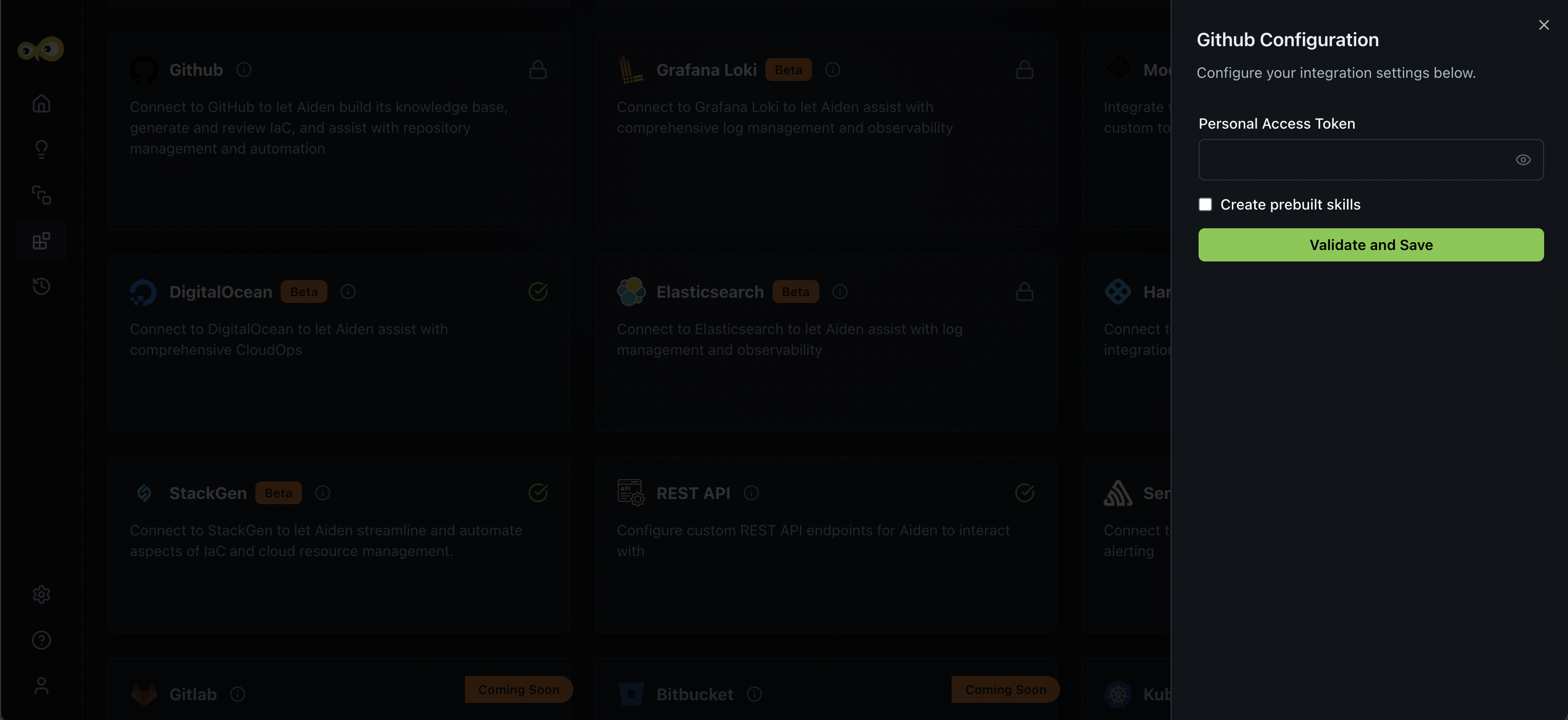GitHub
Connect Aiden with your GitHub repositories to get intelligent assistance with code management, infrastructure as code, and CI/CD workflows. Once enabled, Aiden becomes your DevOps coding partner, helping you manage configurations, troubleshoot workflows, and implement best practices through natural conversations.
Integrations Capabilities
With GitHub integration, Aiden can:
- Explore repository files and codebases.
- Build a knowledge base about your infrastructure configurations.
- Create pull requests with suggested improvements for infra and config changes.
- Review infrastructure code and configuration changes.
- Debug GitHub Actions workflow issues.
- Generate new configuration files based on existing patterns.
- Analyze deployment history and failures.
- Recommend security and best practice enhancements.
Enable GitHub Integration
Follow these steps to enable the Integration:
-
Generate a GitHub Personal Access Token (PAT).
Security best practices- Create a token with minimum required permissions.
- Limit repository access to only what's necessary.
- Regularly rotate the PAT.
- Enable branch protection on critical repositories.
- Consider using required reviews for Aiden-generated PRs.
-
From the Aiden home page, click Integrations from the navigation panel to the left.
-
Hover and click the Activate button on the GitHub Integration card.
-
Enter the GitHub Personal Access Token.

-
Click Save to enable the integration.
Sample Prompts
Here are a few sample prompts that you can use:
- Review the Terraform changes in PR#245 in repo acme/iac.
- Can you improve the security of the cart-service Doeckerfile?
- What's causing the CI pipeline failure in the auth-service repo?
- Generate a GitHub Actions workflow for Node.js testing similar to that of the auth-service.
- Create a PR to optimize our Kubernetes resource configs.
- Help me understand the structure of our Ansible playbooks.